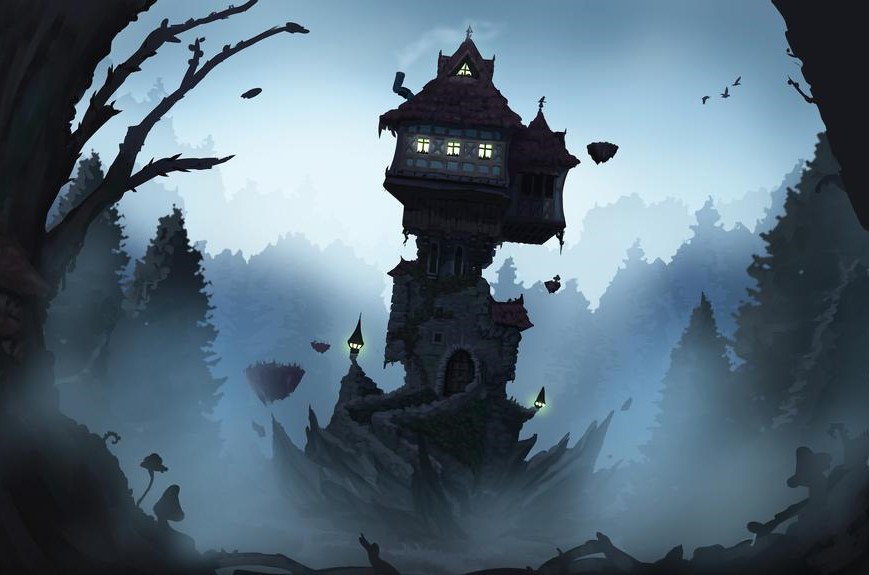Fun! Kind of a Count of Monte Cristo meets Dragon’s Lair vibe to it.
Notes to take/leave:
Title is brief and (no pun intended) to-the-point.
Ellipsis starting off the story with an ellipses heheh.
Nice choice to tell the story in present tense. Helps ratchet up the tension.
I think maybe (?) “…spire before me[:] a towering, crooked…”
“I step[,] hesitantly.”
I love the idea of the fog being animated, trying to mess with protagonist. Maybe lean into that more. Why? How?
You’re telling the story about one person approaching a challenge, so it will necessarily read like internal dialogue (since there’s no one to talk to). I’d steer away from addressing “you” (‘fog takes you, leads you away’) and keep the main focus on the protagonist. Maybe also lean into memories (as the Knight has been here before)—the fog being a metaphor for the hazy nature of old remembrances; Can the Knight’s ‘foggy’ memories be trusted, or are the additional manipulations? Something like, “If the shadows of memories bouncing around in my head can be trusted, I must be on my guard against the fog, against being led away—gently directed into the hazy mist until all I have left are my wits (which will also fade with time).” Or something-something.
“I take two more steps, a leap and a hop.” Is this two steps in total, one leap and one hop? Or two steps, then the leap, then the hop? If it’s the latter, maybe add what is being hopped and leapt over to add some description to the scene.
“Silence” is a great one-word sentence. Helps set the scene/tone. It should have it’s own paragraph. That gives it gravity and let’s the reader have a silent moment as well, before moving on.
“If anything moves in a hundred yard radius, I can hear[;] Yet[,] all is still.”
“Each light-footed step I take clamors through the fog” is excellent! Love it.
“…place[—]this jagged spire[—]was once…”
“A cell at its lowest depth[—]no food, no water[—]is where I was kept.” Reads like a little bit of poetry. Nicely done.
“Then, one day, I was bound no longer.” This feels like cheating the reader a bit. Maybe allude to how the Knight became unbound. Even if the Knight has no idea, even mentioning that would be enough. “Then, somehow, I found myself…” or “Until the Day of Blood [Great Battle/The Elders found me/Whatever], when I somehow managed to…”
Unless… the ‘buried in an unmarked grave’ is literal and connected to how the knight ended up released. I took it as a metaphor for the cell. If so, maybe add a little clarification. Visually, love it.
“…a knight of shadow and sin” is great! Consider that as a title.
Seems two separate thoughts in one paragraph. Maybe “Now, a knight of shadow and sin—reaping the vengeance others cannot—I have come to release my comrades from this spire.”
I’d either go with simply “I open the door” or go in a bit more on why this step in the process is important to call out. Is the door heavy or surprisingly light? Does it creak from disuse, or slide open easily, as if it’s expecting the knight? What is it made out of? Is the door handle cold, metallic, machined? Or is it disturbingly organic, as if the spire itself is alive? Lots of cool stuff here.
“Light floods into the fog like a spilled cup of sunlight.” Love this! The only thing I’d consider here is that the brief moment of hope (light metaphor) is hit immediately with drawing a weapon. Lean into that a bit. “Light floods into the fog like a spilled cup of sunlight, partially eclipsed as I raise my sword.”
Again, love that you give the Spire itself personality throughout. Lean into that more, as well. The only thing I’d consider is that, if the knight is fighting enemies that are in the spire, or controlled by the spire, the sword is perfect. But if the spire is the enemy he must defeat, consider an ax, strapped to the knights back, that he will use to fell the spire! (Wait… now I’m back to the sword lol, but only if the Spire has some version of a ‘heart’ that must be pierced.)
Again, super-fun read. We should all ‘aspire’ to such things lol!

